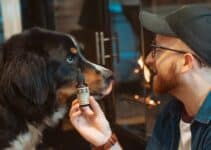Hemp oil, also known as hemp seed oil, is derived from the seeds of the hemp plant. It is rich in essential fatty acids, vitamins, and minerals, making it a popular ingredient in skincare products, dietary supplements, and even food. Hemp oil has gained significant attention in recent years due to its potential health benefits. It is believed to have anti-inflammatory properties, promote heart health, improve skin conditions, and support overall well-being.
Key Takeaways
- Hemp oil has numerous health benefits, including reducing inflammation and anxiety.
- Unregulated hemp oil is not subject to quality control measures and can be dangerous.
- Unregulated hemp oil may contain contaminants such as pesticides and heavy metals.
- Mislabeling of unregulated hemp oil products can lead to unintentional consumption of THC.
- It is important to educate yourself on the risks of unregulated hemp oil and choose safe, regulated products.
What is Unregulated Hemp Oil?
Unregulated hemp oil refers to products that are not subject to strict regulations and quality control measures. Unlike pharmaceutical drugs or FDA-approved supplements, hemp oil falls into a gray area of regulation. While some countries have specific guidelines for the production and sale of hemp oil products, many do not. This lack of regulation means that manufacturers can produce and market hemp oil products without adhering to any specific standards or safety protocols.
The Dangers of Unregulated Hemp Oil
The use of unregulated hemp oil can pose potential risks to consumers. Without proper regulation, there is no guarantee that the product contains the ingredients it claims to have or that it is free from contaminants. This lack of oversight can lead to consumers unknowingly ingesting harmful substances or experiencing adverse effects from mislabeled products.
There have been cases where unregulated hemp oil products have been found to contain high levels of THC (tetrahydrocannabinol), the psychoactive compound found in marijuana. This can be particularly dangerous for individuals who are sensitive to THC or who may be subject to drug testing for employment or other purposes.
Lack of Quality Control in Unregulated Hemp Oil
One of the main concerns with unregulated hemp oil is the lack of quality control measures in place. Without regulations, manufacturers are not required to follow specific guidelines for production, testing, or labeling. This means that there is no guarantee that the product is safe, effective, or accurately labeled.
In regulated industries, such as pharmaceuticals or dietary supplements, there are strict quality control measures in place to ensure that products meet certain standards. This includes testing for purity, potency, and contaminants. However, without these regulations, consumers are left to trust that the manufacturer has taken the necessary steps to ensure the quality and safety of their product.
Potential Contaminants in Unregulated Hemp Oil
Another significant concern with unregulated hemp oil is the potential for contamination. Hemp plants are known to absorb toxins and heavy metals from the soil in which they are grown. Without proper testing and quality control measures, there is a risk that these contaminants can end up in the final product.
Contaminants such as pesticides, herbicides, and heavy metals can be harmful when ingested or applied to the skin. They can cause adverse reactions, allergic responses, or even long-term health issues. Without regulation, consumers have no way of knowing if the hemp oil they are using is free from these potentially harmful substances.
Mislabeling of Unregulated Hemp Oil Products
Mislabeling is another common issue with unregulated hemp oil products. Without regulations in place, manufacturers may make false claims about the ingredients or benefits of their products. They may also mislabel the potency or concentration of certain compounds, such as CBD (cannabidiol).
This mislabeling can be dangerous for consumers who rely on accurate information to make informed decisions about their health and well-being. For example, if a product claims to contain a certain amount of CBD but actually contains less or none at all, consumers may not experience the desired effects or may unknowingly consume more than intended.
The Risk of THC in Unregulated Hemp Oil
THC is the psychoactive compound found in marijuana that produces a “high” sensation. While hemp oil typically contains very low levels of THC, unregulated products may contain higher levels than advertised. This can be a concern for individuals who are sensitive to THC or who may be subject to drug testing.
Consuming hemp oil with high levels of THC can result in unwanted side effects, such as dizziness, confusion, or impaired coordination. It can also lead to a positive drug test, which can have serious consequences for individuals in certain professions or situations.
Legal Issues Surrounding Unregulated Hemp Oil
The legal status of hemp oil varies from country to country and even within different states or regions. In some places, hemp oil is legal for both medicinal and recreational use, while in others, it is strictly regulated or prohibited. This lack of consistency in regulations adds to the confusion surrounding the safety and legality of hemp oil products.
In countries where hemp oil is unregulated, consumers may have limited legal recourse if they experience negative effects from using a product. Without clear guidelines or standards in place, it can be challenging to hold manufacturers accountable for any harm caused by their products.
How to Identify Safe and Regulated Hemp Oil Products
Given the potential risks associated with unregulated hemp oil, it is essential for consumers to prioritize safety and quality when purchasing these products. Here are some tips for identifying safe and regulated hemp oil products:
1. Look for third-party testing: Choose products that have been tested by an independent laboratory for purity, potency, and contaminants. This ensures that the product meets certain quality standards and is free from harmful substances.
2. Check for proper labeling: Look for products that provide detailed information about the ingredients, potency, and concentration of CBD or other compounds. Avoid products that make exaggerated claims or do not provide clear labeling.
3. Research the manufacturer: Take the time to research the manufacturer or brand before making a purchase. Look for companies that have a good reputation, transparent manufacturing processes, and positive customer reviews.
4. Consider the source of the hemp: Hemp plants are known to absorb toxins from the soil, so it is important to choose products that are made from organically grown hemp. Look for products that are sourced from reputable farms or manufacturers.
The Importance of Educating Yourself on Hemp Oil Risks
In conclusion, while hemp oil has the potential to offer numerous health benefits, it is crucial for consumers to be aware of the risks associated with unregulated products. Without proper regulation, there is no guarantee of safety, quality, or accurate labeling. By educating themselves on the potential dangers and taking steps to identify safe and regulated products, consumers can prioritize their health and well-being when using hemp oil.
If you're interested in learning more about the benefits of CBD for pets, you may want to check out this informative article on the best CBD for calming dogs. It provides valuable insights into how CBD can help alleviate anxiety and stress in our furry friends. With the increasing popularity of CBD products, it's crucial to understand the risks associated with unregulated hemp oil. To gain a comprehensive understanding of these risks, be sure to read the Guide to Understanding Unregulated Hemp Oil Risks.
FAQs
What is unregulated hemp oil?
Unregulated hemp oil is a type of oil extracted from the hemp plant that is not subject to any government regulations or oversight.
What are the risks associated with unregulated hemp oil?
Unregulated hemp oil may contain harmful contaminants, such as pesticides, heavy metals, and solvents. It may also contain inaccurate levels of CBD or THC, which can have negative effects on the body.
How can I ensure the hemp oil I purchase is regulated?
Look for hemp oil products that have been third-party tested and have a certificate of analysis (COA) available. This will ensure that the product has been tested for contaminants and accurately labeled for CBD and THC content.
What should I do if I experience negative side effects from unregulated hemp oil?
Stop using the product immediately and seek medical attention if necessary. It is important to report any negative side effects to the manufacturer and the FDA.
Is all hemp oil unregulated?
No, not all hemp oil is unregulated. Some hemp oil products are subject to government regulations and oversight, such as those sold in licensed dispensaries or through pharmaceutical companies.
What is the difference between hemp oil and CBD oil?
Hemp oil is extracted from the seeds of the hemp plant and does not contain significant levels of CBD or THC. CBD oil, on the other hand, is extracted from the flowers, leaves, and stalks of the hemp plant and contains high levels of CBD and low levels of THC.




